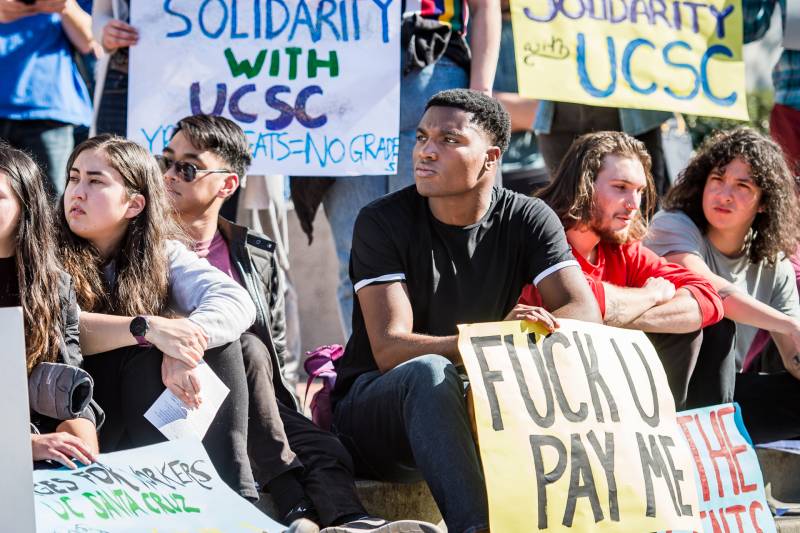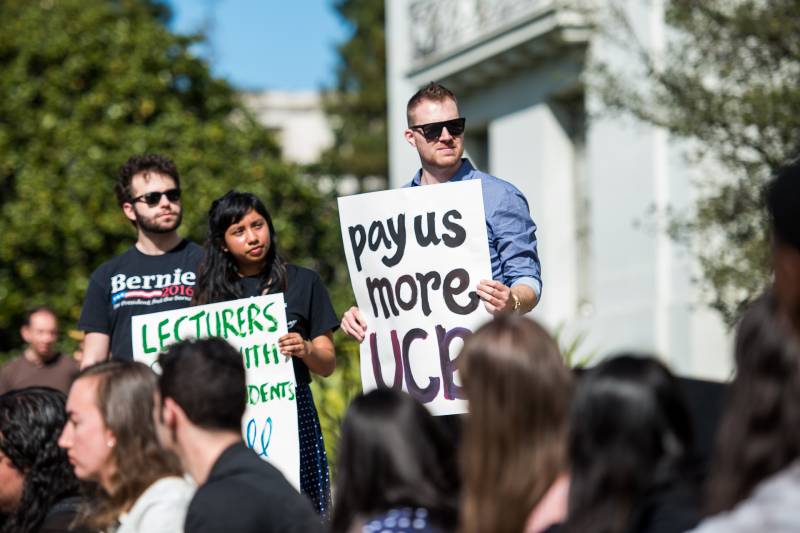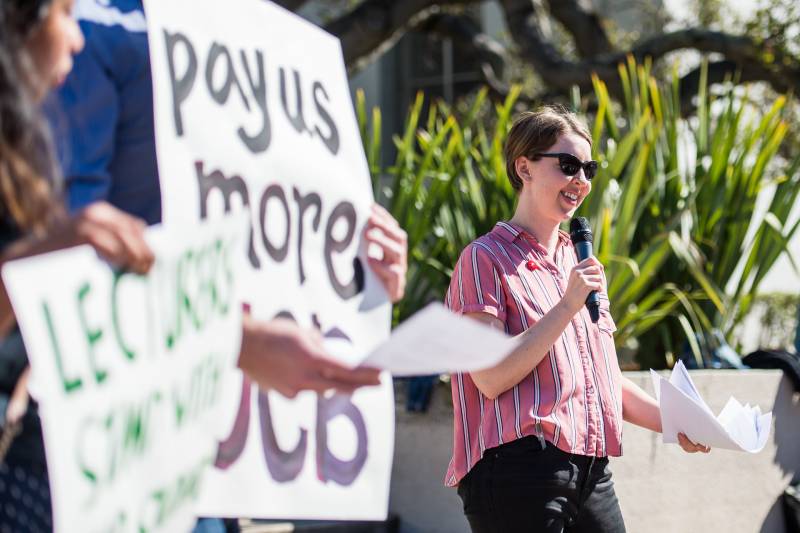Updated 7:50 p.m.
The fight for better wages for graduate students is gaining momentum across the state.
On Friday, students at several University of California campuses rallied to warn administrators from retaliating against striking students at UC Santa Cruz and to demand cost of living increases at their respective campuses.
Graduate student leaders at UC Berkeley said they’re seriously considering a strike of their own.
At a rally of a couple hundred people at Sproul Plaza, students read aloud a letter to administration officials demanding their own cost of living adjustment, or COLA, of $2,103 per month.

Chemical engineering Ph.D. student Adrian Davey held a sign that said, “Fuck U Pay Me.”
“I think protest needs to be radical,” he said. “I think this [sign] very radically says what we want, very directly.”
The students raised the high cost of housing as a primary reason for demanding a wage adjustment on top of the 3% annual wage increase that’s in the current contract.
“I believe that the housing burden across California is crazy,” Davey said. “As graduate students, as lecturers, we’re literally running this institution. It’s absolutely ridiculous that we’re not being provided and subsidized with the amount of wage that we’re owed to even dwell here in California.”
After about an hour, students left Sproul Plaza and made their way to a nearby campus dining hall, where a group led primarily by undergraduate students staged a takeover. Calling it a “peaceful occupation,” students took and distributed food for free.
“This action is in solidarity with the students of UC Santa Cruz who were able to effectively shut down a dining commons and feed their students for a day,” said Alecia Harger, an undergraduate student at UC Berkeley. “We are saying that today the food is free because we as students pay for this food and graduate students are not paid enough to eat.”


